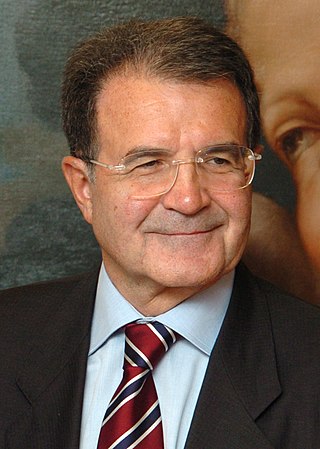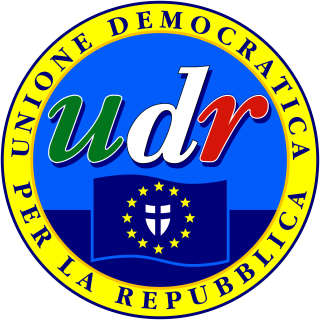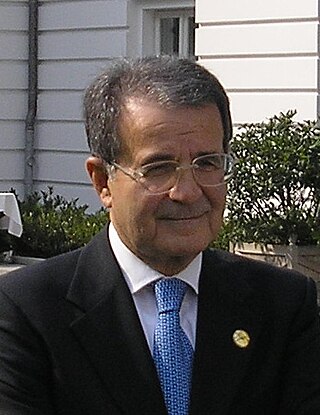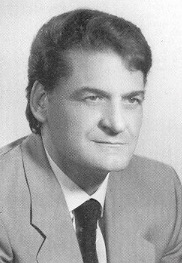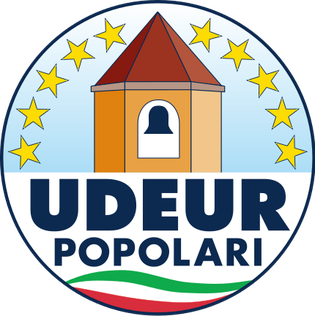Clemente Mastella | |
|---|---|
 Mastella in 2020 | |
| Mayor of Benevento | |
| Assumed office 20 June 2016 | |
| Preceded by | Fausto Pepe |
| Minister of Justice | |
| In office 17 May 2006 –16 January 2008 | |
| Prime Minister | Romano Prodi |
| Preceded by | Roberto Castelli |
| Succeeded by | Romano Prodi |
| Minister of Labour and Social Security | |
| In office 10 May 1994 –17 January 1995 | |
| Prime Minister | Silvio Berlusconi |
| Preceded by | Gino Giugni |
| Succeeded by | Tiziano Treu |
| Member of the European Parliament for Southern Italy | |
| In office 14 July 2009 –1 July 2014 | |
| In office 20 July 1999 –20 July 2004 | |
| Member of the Senate of the Republic | |
| In office 28 April 2006 –28 April 2008 | |
| Constituency | Calabria |
| Member of the Chamber of Deputies | |
| In office 5 July 1976 –27 April 2006 | |
| Constituency | Campania |
| Mayor of Ceppaloni | |
| In office 27 May 2003 –15 April 2008 | |
| Preceded by | Nicola Nino Rossi |
| Succeeded by | Claudio Cataudo |
| In office 10 March 1986 –21 July 1992 | |
| Succeeded by | Antonio Parente |
| Personal details | |
| Born | Mario Clemente Mastella 5 February 1947 Ceppaloni,Italy |
| Political party | DC (1976–1994) CDC (1994–1998) CDR (1998) UDR (1998–1999) UDEUR (1999–2013) FI (2013–2015;2018–2020) PpS (2015–2017) UDEUR 2.0 (2017–2018) NC (2020–2021) NDC (since 2021) |
| Height | 1.77 m (5 ft 10 in) |
| Spouse | Sandra Lonardo (m. 1975) |
| Children | 2 |
| Profession | Politician, former journalist |
Mario Clemente Mastella (born 5 February 1947) is an Italian politician who has been the mayor of Benevento since 20 June 2016. He also served as leader of the Union of Democrats for Europe (UDEUR), a minor centrist and Christian-democratic Italian party. Mastella, who began his career in the Christian Democracy (DC) party, being elected to the Chamber of Deputies in 1976, is known for his trasformismo , changing over his career many political parties and affiliations.
Contents
- Early life and education
- Political career
- Deputy, mayor of Ceppaloni, and Minister of Labour
- Senator and Minister of Justice
- 2008 Italian political crisis
- Member of the European Parliament
- Mayor of Benevento
- Personal life
- Electoral history
- References
- External links
Mastella was Minister of Labour and Social Policies in the first Berlusconi government from 10 May 1994 to 17 January 1995 and Minister of Justice in the second Prodi government from 17 May 2006 to 17 January 2008. During the same period, he was a member of the Senate of the Republic and determined the narrow majority of Romano Prodi's government, which ended when he started the 2008 Italian government crisis that led to Prodi's resignation as prime minister and Silvio Berlusconi return to power after the snap election that ensued. In June 2009, he was elected to the European Parliament on the list of The People of Freedom (PdL) of Berlusconi; it was his second stint at the European Parliament, after a first term with the UDEUR from 1999 until 2004. After having been the mayor of Ceppaloni twice in three separate decades (1980s, 1990s, and 2000s), he was elected mayor of Benevento in 2016 and re-elected in 2021.
